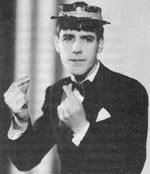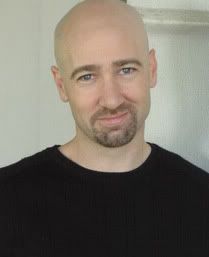The Roast
Last night I participated in my first roast. As you probably know, the basic idea of the roast is to "honor" someone by subjecting them to a stream of insulting jokes. And the general rule seems to be that the more insulting, base and off-color you can be, the more esteemed the honoree. There are bonus points awarded in the category of "can you top this" shock value. Think Don Rickles.
The honoree was a local performer and booker who has done a lot for the local comedy scene. She has nearly single-handedly developed two great rooms for "emerging" comics. She has given us more (and better) stage time than we could get anywhere else, for which we are all grateful. Still, it's a roast. You can't come out and say "thank you" at a roast. It's just not done.
The honoree, I should also mention, has one physical characteristic which is salient for purposes of a roast: she is overweight. She's a big beautiful woman.
As a general rule, I think the assembled comics (myself included) were a little daunted by the idea of the roast. About half of those who signed up either didn't show, or took themselves off the list. That was probably a good idea. The more I thought about it, I realized: the difference between a "ha-ha" insult and a "you insensitive bastard" insult is very small. This roast stuff is harder than it looks.
Everyone managed to be insulting. Check. Funny was much harder to come by. Many comedians went for the (seemingly) easy laugh: the fat jokes. Okay, I guess they're inevitable. And the honoree knew what was coming, and seemed to take it in stride.
But this roasting stuff is high stakes poker. If you go with the fat jokes and they work, you'll get some laughs. If they don't, you're not just bombing; you're bombing, and you come off looking like a misogynist. (Though nowadays, I believe they prefer to be called Misog-therapists.) There were some clever lines, yes. But when they weren't funny, they sounded petty and mean-spirited. High risk, fairly low reward.
Still, the comedians laughed at everything, even the worst jokes. In fact, they seemed more delighted by the jokes that bombed than by the good ones, which is not uncommon.
(Oh, beware! Beware the laughing comedian. If I'm trying out material at an open mike, and I get laughs from the other comedians, it feels good. But sometimes comedians laugh because they thought they knew where a joke was going, and it went somewhere else. A "real" audience might not find that funny at all. Sometimes comedians laugh out of shock. Even though the comedians may laugh, there's still a fair chance that a real audience will give you nothing. I digress.)
So here's what we have: 1) an audience that is lethargic at best, and is mainly there for coffee and free wi-fi; 2) comedians telling a lot of "in" jokes that aren't accessible to the audience; and 3) jokes that are perilously close to tasteless, crossing the line more often than Billy Joel driving home from a barbecue at Diddy's house. (Rimshot. Thank you. I'll be here all week. Try the veal.)
As K. pointed out to me, it would have made for a fascinating anthropological study. I half expected to see Jane Goodall over in the corner taking notes. ("The younger ones seem to act out by making 'you so fat' jokes...though the jokes fall flat, the other members of the clan still laugh...could it be that this primitive species is capable of schadenfreude?")
"Come on, lighten up," you say. "That's what roasts are like." That may be true. I just wasn't comfortable going in that direction, so I didn't. I had a couple of good lines that got some laughs, so I was happy about that. And I was relieved when it was over.
Could I have done better? Probably. But I could have done worse.
 The late great Ish Kabibble - not my namesake.
The late great Ish Kabibble - not my namesake.

